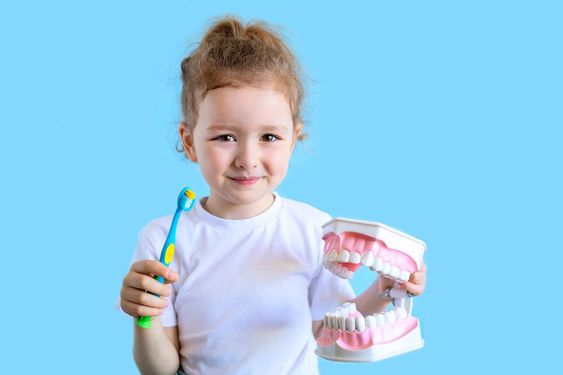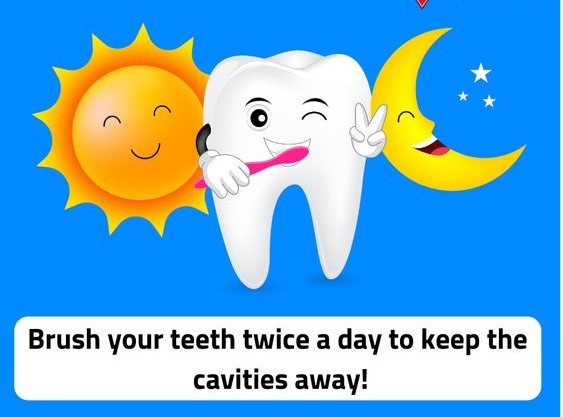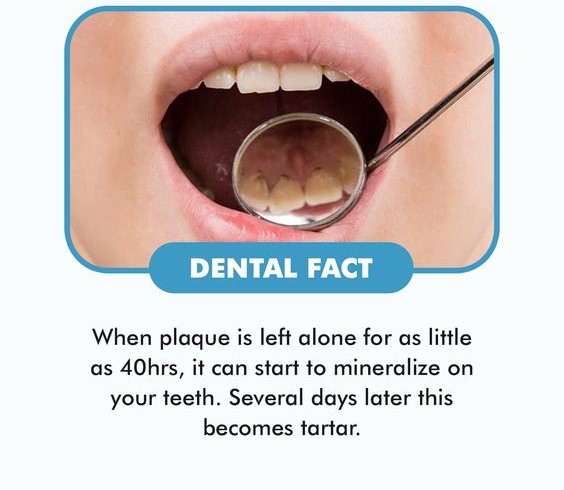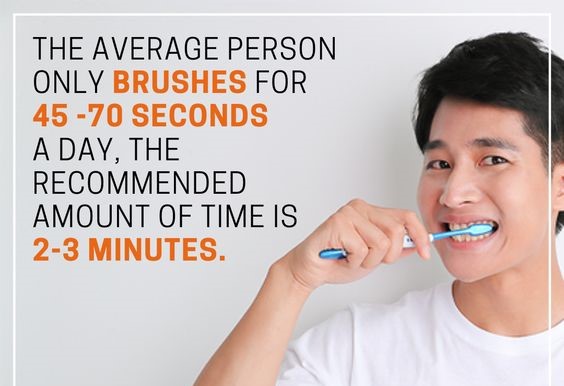
Outline
Introduction
- Importance of oral hygiene
- Overview of the debate: morning vs. night brushing
Why Brushing Your Teeth Is Essential
- Prevention of tooth decay and gum disease
- Removal of plaque and bacteria
- Maintaining fresh breath
Morning Brushing: The Case For It
- Benefits of brushing after breakfast
- Removal of overnight bacteria
- Starting the day with fresh breath
Night Brushing: The Case For It
- Importance of removing daily plaque build-up
- Prevention of bacteria growth overnight
- Going to bed with a clean mouth
The Science Behind Plaque and Bacteria
- How plaque forms
- The role of bacteria in oral health
- Impact of not brushing regularly
Morning Brushing: Pros and Cons
- Pros:
- Fresh breath in the morning
- Removal of overnight bacteria
- Cons:
- Can miss removing breakfast debris if done before eating
- Potential acid erosion if brushing immediately after breakfast
Night Brushing: Pros and Cons
- Pros:
- Removal of all-day plaque and food particles
- Prevention of overnight bacteria growth
- Cons:
- Possible neglect due to fatigue
- Less immediate impact on morning breath
Expert Opinions on Brushing Times
- What dentists recommend
- The balance between morning and night brushing
The Role of Toothpaste and Mouthwash
- Importance of fluoride
- Benefits of using mouthwash
- Timing for optimal results
Tips for Effective Brushing
- Proper brushing technique
- Duration of brushing
- Tools for better oral hygiene (electric vs. manual toothbrushes)
Common Myths About Brushing Times
- Myth: Brushing more often is better
- Myth: Night brushing alone is sufficient
- Myth: Morning brushing alone is sufficient
Personalizing Your Brushing Routine
- Assessing your diet and lifestyle
- Considering dental history
- Adapting to personal preferences and schedules
Beyond Brushing: Comprehensive Oral Care
- Importance of flossing
- Regular dental check-ups
- Healthy diet for oral health
Conclusion
- Summary of key points
- Final thoughts on morning vs. night brushing
FAQs
- Is it necessary to brush both morning and night?
- What if I can only brush once a day?
- Can mouthwash replace brushing?
- Is flossing more important than brushing?
- How often should I change my toothbrush?
Brushing your Teeth : Morning or Night - Which is better ?

Maintaining good oral hygiene is crucial for overall health, but there’s an ongoing debate about whether brushing your teeth in the morning or at night is more beneficial. Let’s delve into the advantages of both to help you decide which might be better for you.
Why Brushing your Teeth is essential ?
Brushing your teeth isn’t just about having a sparkling smile. It’s a fundamental practice for preventing tooth decay and gum disease, removing plaque and bacteria, and keeping your breath fresh. Neglecting this routine can lead to serious dental issues, so it’s important to brush regularly.

Morning brushing : The case for it
Brushing your teeth in the morning, especially after breakfast, has its benefits. Overnight, bacteria build up in your mouth, leading to that unpleasant morning breath. Brushing in the morning helps remove these bacteria, giving you fresh breath to start your day. Additionally, if you brush after breakfast, you can clear away any food particles and reduce the risk of plaque formation throughout the day.
Night brushing : The case for it
On the other hand, brushing your teeth at night is crucial for getting rid of the day’s accumulation of plaque and food particles. During the day, your mouth is exposed to various foods and drinks, which can lead to plaque build-up. Brushing before bed ensures that you go to sleep with a clean mouth, preventing bacteria from multiplying overnight and reducing the risk of cavities and gum disease.
The Science behind Plaque and Bacteria
Plaque is a sticky film of bacteria that forms on your teeth. When you consume food and drinks, especially those high in sugar, the bacteria produce acids that can erode tooth enamel and cause cavities. Brushing your teeth removes this plaque and prevents the bacteria from causing damage. Regular brushing is essential to maintaining a healthy balance of bacteria in your mouth.
Morning brushing : Pros and cons
Pros:
- Fresh breath in the morning:Nothing beats starting the day with a minty-fresh mouth.
- Removal of overnight bacteria:Eliminating bacteria that accumulate overnight is beneficial for your oral health.
Cons:
- Can miss removing breakfast debris if done before eating:If you brush before breakfast, you might not remove all food particles.
- Potential acid erosion if brushing immediately after breakfast:Brushing right after eating, especially acidic foods, can erode enamel.
Night brushing : Pros and cons
Pros:
- Removal of all-day plaque and food particles:Clears away the day’s build-up, keeping your teeth cleaner.
- Prevention of overnight bacteria growth:Reduces the risk of cavities and gum disease by minimizing bacteria overnight.
Cons:
- Possible neglect due to fatigue:You might skip brushing if you’re too tired.
- Less immediate impact on morning breath:Doesn’t address morning breath directly.
Expert opinions on brushing times
Most dentists agree that the ideal routine involves brushing twice a day—once in the morning and once at night. This ensures that you remove bacteria and plaque at both crucial times of the day, maintaining optimal oral health. Balancing both times is often recommended for the best results.
The role of toothpaste and mouthwash
Toothpaste, especially those containing fluoride, is essential for strengthening tooth enamel and preventing decay. Mouthwash can also play a significant role in oral hygiene by killing bacteria and freshening breath. Using these products at the right times can enhance your brushing routine and provide better protection against dental issues.
Tips for effective brushing
- Proper brushing technique:Use a gentle, circular motion to clean all surfaces of your teeth.
- Duration of brushing:Aim for at least two minutes of brushing each session.
- Tools for better oral hygiene:Consider using an electric toothbrush, which can be more effective at removing plaque than a manual one.
Common myths about brushing times
Myth: Brushing more often is better
Brushing too frequently can wear down enamel. Stick to twice a day for optimal results.
Myth: Night brushing alone is sufficient
Night brushing is important, but skipping morning brushing can leave bacteria in your mouth all day.
Myth: Morning brushing alone is sufficient
Morning brushing doesn’t remove the day’s build-up of plaque and bacteria, making night brushing essential.
Personalizing your brushing routine
Your brushing routine should be tailored to your lifestyle, diet, and dental history. If you consume a lot of sugary foods or have a history of dental issues, you might need to be more diligent with your routine. Adapting your brushing schedule to fit your personal needs can help you maintain better oral health.
Beyond brushing : Comprehensive oral care
Good oral hygiene goes beyond just brushing. Flossing daily helps remove plaque and food particles between teeth, where your toothbrush can’t reach. Regular dental check-ups are also crucial for catching issues early and maintaining healthy teeth and gums. A balanced diet that includes plenty of water, fruits, and vegetables can support overall oral health.
Conclusion
So, is brushing your teeth in the morning or at night better? The answer is both! Each time of day has its unique benefits, and combining the two offers the best protection for your teeth and gums. By brushing twice a day, using fluoride toothpaste, and incorporating flossing and regular dental visits into your routine, you can ensure a healthy, beautiful smile.
FAQs
Is it necessary to brush both morning and night? Yes, brushing both morning and night helps remove bacteria and plaque at crucial times, protecting your teeth and gums more effectively.
What if I can only brush once a day? If you must choose, brushing at night is generally more beneficial as it removes the day’s accumulation of plaque and food particles.
Can mouthwash replace brushing? No, mouthwash can complement brushing but doesn’t remove plaque and food particles as effectively as brushing and flossing.
Is flossing more important than brushing? Both are important. Brushing cleans the surfaces of your teeth, while flossing removes plaque and food particles from between teeth.
How often should I change my toothbrush? Replace your toothbrush every three to four months, or sooner if the bristles are frayed.



